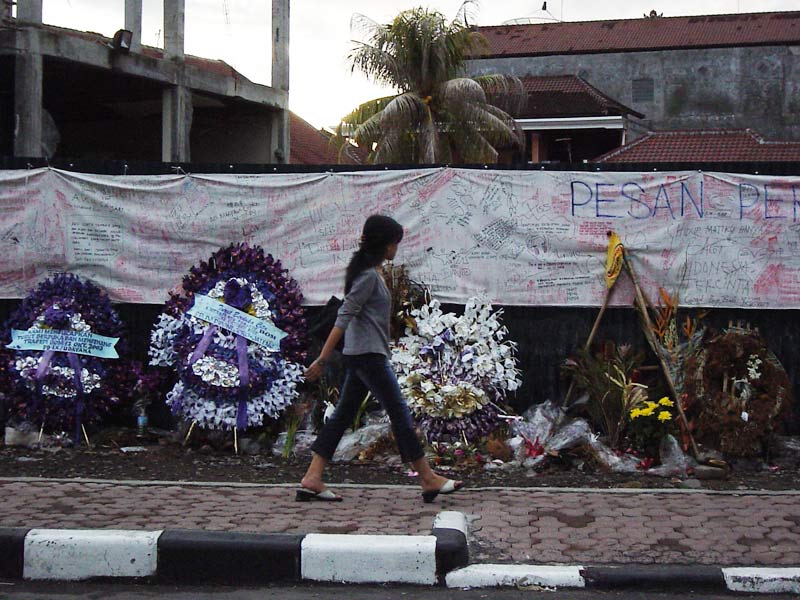KUALA LUMPUR – Jemaah Islamiyah (JI) hit the headlines in Malaysia again when one of its members killed two junior police officers and injured another at the Ulu Tiram police station in the suburbs of Johor Bahru in the pre-dawn hours of today.
Police have also identified more than 20 individuals believed to be JI members, following the attack on the police station.
Founded in Indonesia, the Southeast Asian terror group, which once had links to al-Qaeda and a network of underground militant organisations, also has roots in Malaysia.
JI was designated by the US as a terrorist group after its notorious 2002 bombings in Bali, Indonesia. Its operatives set off two bombs at Paddy’s Bar and the Sari Club in the popular tourist centre of Kuta Beach.
It killed a total of 202 people including 88 Australians, and injured another 240 people.

Setting up shop in Malaysia
JI leaders Abdullah Sungkar and Abu Bakar Bashir fled Indonesian authorities and sought refuge in Malaysia in 1985, by way of Medan.

According to a paper published by the Institute of Defence and Strategic Studies Singapore, the duo settled down in Kuala Pilah, Negri Sembilan. Abdullah adopted the alias of “Abdul Halim” while Abu Bakar was known as “Abdus Somad”.
During their time in Malaysia, they met with other militants and separatists from Acheh and Sulawesi, who had ties with another Islamist group Darul Islam. They also recruited fighters to fight the war in Afghanistan.
By the end of 1999, Abu Bakar had helped set up Rabitah al-Mujahidin (RM), comprised of militant groups such as Kumpulan Militan Malaysia (KMM), Darul Islam, Moro Islamic Liberation Front (Mindanao), and Pattani United Liberation Organisation (southern Thailand).
Leadership changed hands eventually when Abdullah died in November 1999 and a splinter group led by Riduan Isamuddin aka Encep Nurjaman (Hambali) left Abu Bakar.
Malaysians in JI
Among the most-wanted JI terrorists were bombmakers Azhari Husin and Noordin Mohammed Top.
Both Malaysians are thought to be the masterminds of the August 2003 attack on the Marriott Hotel and a September 2004 car bomb outside the Australian embassy in Jakarta.
Noordin, who is Johorean, was described by the FBI as an explosives expert, recruiter, bombmaker and trainer for JI.
On September 17, 2009, Indonesian police announced that Noordin was killed in a police raid along with three other terrorists.
His body was identified by comparing fingerprints taken from his corpse to samples from Malaysia.
His first wife was an Indonesian-born Malaysian woman, last reported in 2009 to live in Johor with their son.
Meanwhile, Azhari, a UK-educated engineer and explosives expert, was killed in a police raid in 2005. Nicknamed the “Demolition Man”, he was implicated in at least seven bombings in Indonesia and the Philippines.
Azahari was shot and killed by a police sniper, after which one of his followers blew himself up.

Currently, the other two Malaysians, who were JI members, are held in Guantanamo Bay detention camp for 21 years in connection with the devastating 2002 Bali bombings.
The two Malaysians – Mohamad Farik Amin, 48, and Mohammed Nazir Lep, 47 – were captured in Thailand in 2003 but never faced trial until 2024.
The chances of their return to Malaysia hinge on diplomatic communications with the US.
Arrests and releases
After the 2002 Bali bombings, Malaysian authorities detained more than 70 suspected Islamic militants over a period of 18 months.
Southeast Asian governments also arrested more than 300 suspected terrorists, crippling JI’s network.
Thailand detained the network’s operations chief in 2003 and in April 2009 recaptured Singapore JI leader Mas Selamat Kastari, who escaped from his prison cell in early 2008.
Malaysia in August 2007 released four alleged JI members who were held at the Kamunting detention centre in Perak.
Their release under the Restricted Residence Act was a quiet affair with little media coverage, but was noted by human rights group Gerakan Mansuh ISA.
The movement opposed the ISA or Internal Security Act, a detention-without-trial law that has since been repealed.
The four released were Shukry Omar Talib, Mohammed Kadir, Mohd Azmi Abdul Karim and Shahime Ramli.

Previous terror attacks involving JI
– September 16, 2014: JI claimed responsibility for the bombing of the Rizal Monument in front of the city hall of General Santos, Philippines, killing one person and injuring seven.
– October 2005: suicide bombings in Bali – killing 20 people and injuring 129.
– September 2004: suicide car bombing outside the Australian Embassy in Jakarta – killing three people and wounding more than 100.
– August 2003: car bombing of the JW Marriott hotel in Jakarta – killing 12.
– October 2002: bombings in Bali – killing 202.
– December 2000: wave of church bombings in Indonesia – killing 18.
– December 2000: series of bombings in Manila – killing 22.
– 1995: a plot to bomb 11 US commercial flights in Asia. – May 17, 2024

